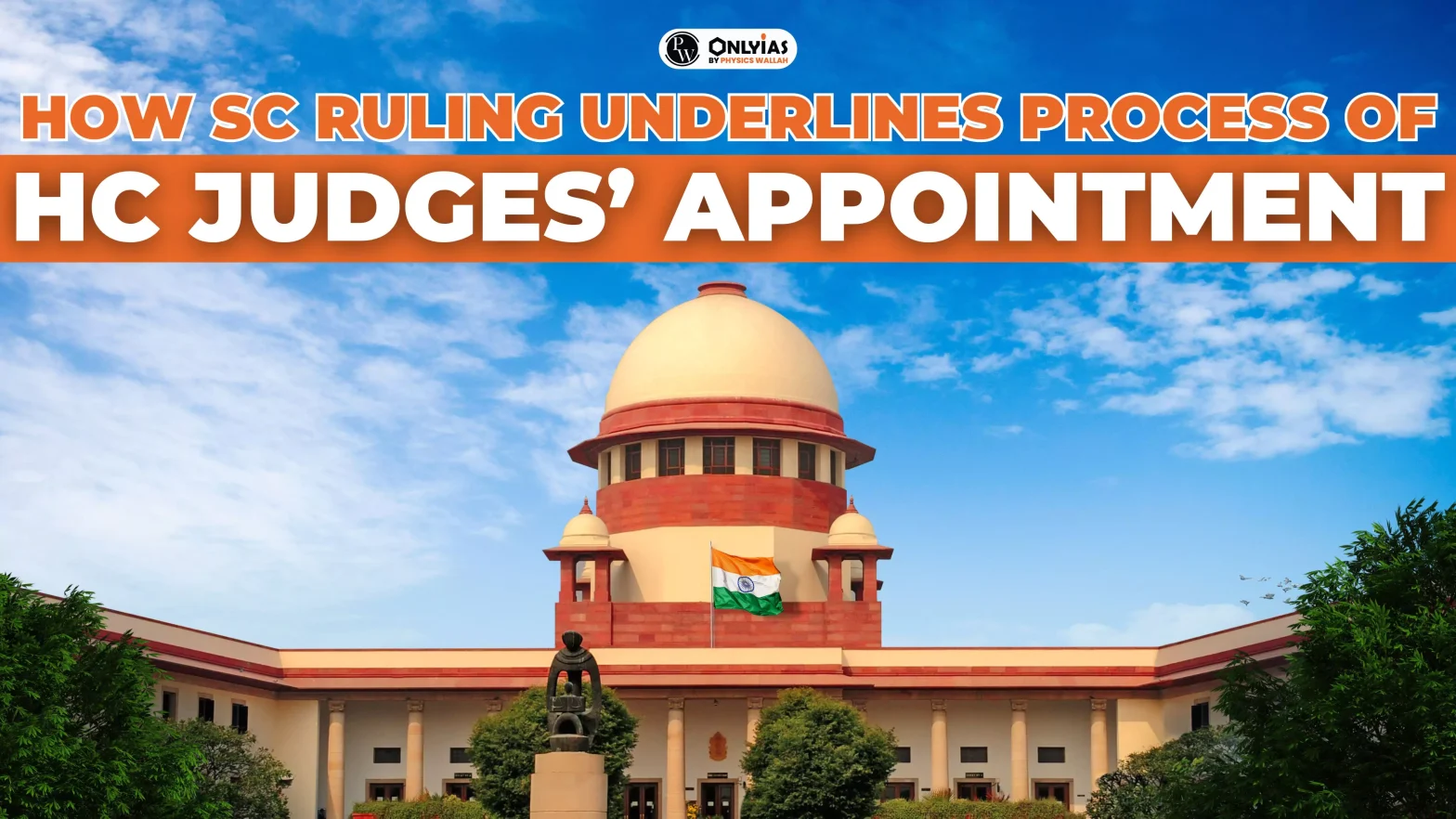The Supreme Court has directed the Himachal Pradesh High Court collegium to reconsider the appointments of two judicial officers initially recommended for elevation to the Bench 21 months ago.
Appointment of Judges
- Supreme Court: The President of India appoints Supreme Court judges based on recommendations from a collegium. This collegium includes the Chief Justice of India, and the panel of four most senior judges.
- High Court Collegium(As per Memorandum of Procedure (MOP, 1998): The collegium system in High Courts involves the Chief Justice of the High Court and its two senior-most judges. They decide on the names of candidates for elevation and forward these recommendations to the Chief Minister (CM), Governor, and Chief Justice of India (CJI).
- Governor’s Role: Upon receiving the CM’s recommendation, the Governor forwards the proposal to the Union Minister of Law and Justice.
- Law Minister’s Review: The Law Minister conducts a background check on the candidates. The information is then sent to the CJI.
- Supreme Court Collegium Decision: The CJI, along with the two senior-most Supreme Court judges, reviews the recommendation. Usually, the Supreme Court approves the names if the background check is clear.
However, this is the first instance where the Supreme Court bench has directed a High Court to reconsider previously recommended names.
Enroll now for UPSC Online Course
Collegium System Background
- Pre-1993 System: Before 1993, the appointment of judges was primarily controlled by the executive, granting the central government significant authority over these appointments.
- Second Judges Case (1993): This landmark case established the collegium system. It mandated that the Chief Justice of India (CJI) must consult a collegium comprising the two senior-most Supreme Court judges when making recommendations for judicial appointments to the High Court and Supreme Court.
- The court ruled that the “collective opinion” of the collegium takes precedence over the government’s views.
- Under this system, the judiciary is responsible for selecting judges, while the government can only delay but not reject the appointments.
- Clarifications in 1998: In response to queries from then-President K. R. Narayanan, the Supreme Court provided further clarification in the Third Judges Case.
- The Court ruled that the Collegium System requires the consultation of a plurality of judges. It was determined that the Chief Justice of India should consult a collegium of the four senior-most judges of the Supreme Court. Since then, the Collegium System has been in place for appointments.
- This case also defined the composition and consultation process for the High Court collegium. It includes the CJI and the two senior-most Supreme Court judges, who must consult with the Chief Justice and senior judges of the relevant High Court, as well as the senior-most Supreme Court judge from that High Court and any other knowledgeable Supreme Court judges.
Check Out UPSC CSE Books From PW Store
The recent Supreme Court directive for the Himachal Pradesh High Court collegium to reconsider the appointments underscores the judiciary’s commitment to maintaining high standards and transparency in judicial appointments. The collegium system, established by landmark judgments, aims to ensure a fair and balanced process by involving senior judges at multiple levels. This case highlights the judiciary’s role in upholding the integrity of judicial appointments and the need for ongoing scrutiny and adherence to established procedures to ensure the appointment of competent judges.
![]() 12 Sep 2024
12 Sep 2024
